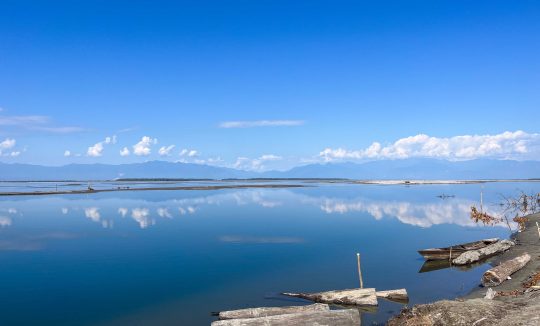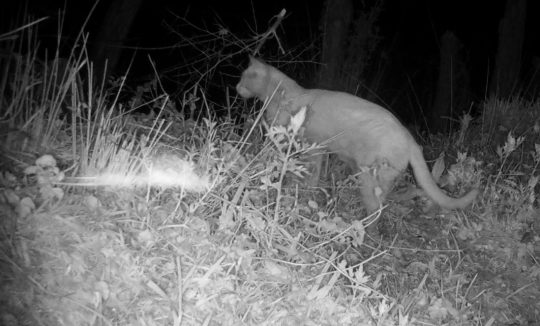Project Info
Project Description
Nearly 50 bears successfully rehabilitated Back to the Wild.
THE CENTRE FOR BEAR REHABILITATION AND CONSERVATION (CBRC), established under the Pakke Conservation Project, is the first specialised rehabilitation centre for Asiatic black bears in India. Supported by the Ministry of Environment and Forests (MoEF), the centre was established jointly by the Arunachal Pradesh Forest Department, International Fund for Animal Welfare (IFAW) and Wildlife Trust of India (WTI) in 2002, with an aim to rehabilitate displaced cubs back into the wild.
The Asiatic black bear (Ursus thibetanus) is one of the four species of bear found in India. It primarily inhabits the Himalayas, extending from Jammu and Kashmir in the west to Arunachal Pradesh in northeast India. The species also inhabit the hills of northeast India (1200-3000 m).
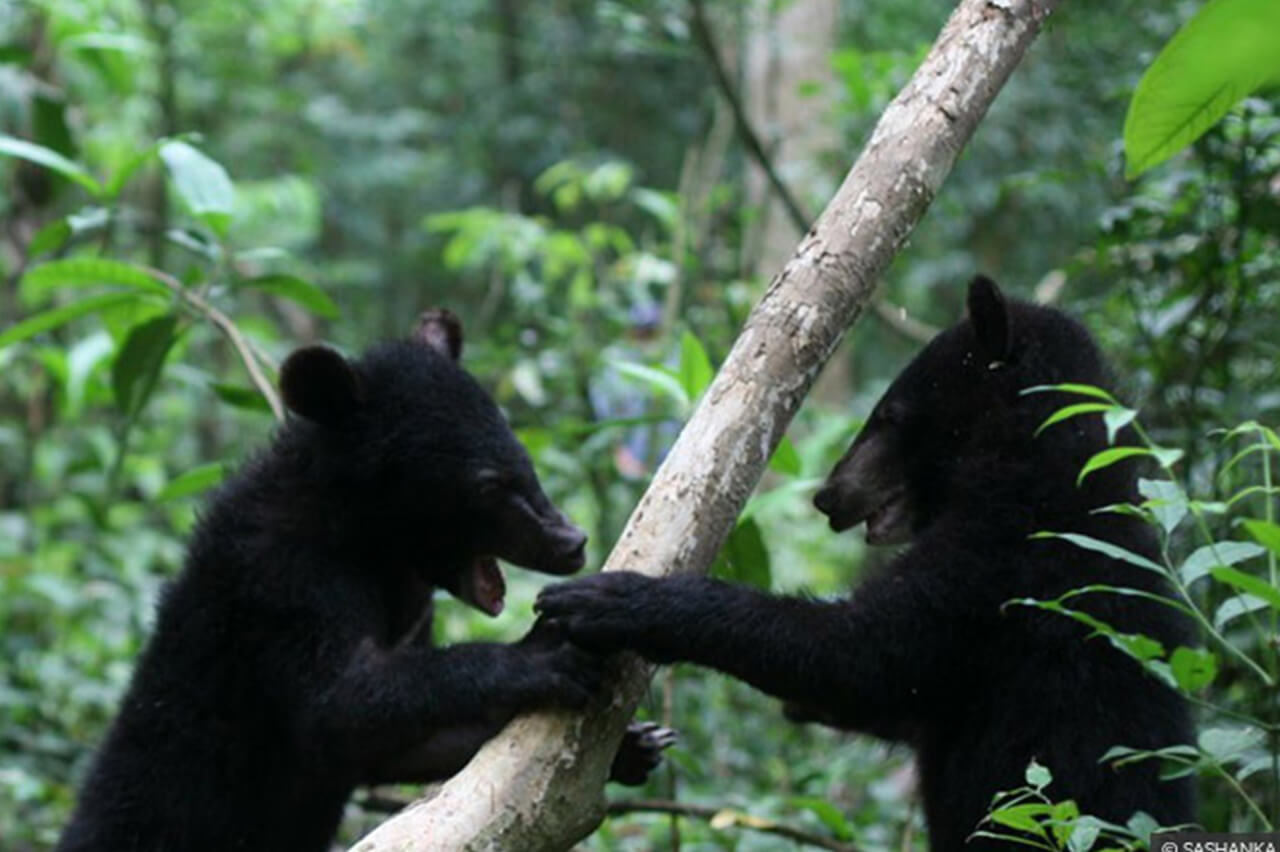
Listed in Schedule II of India’s Wild Life (Protection) Act, 1972, the Asiatic black bear faces persecution for its body parts. Habitat destruction and conflict with humans are also among the major threats to this species.
In the northeast Indian state of Arunachal Pradesh, the bear is particularly hunted for meat. Often, young cubs are orphaned due to hunting; these cubs are either picked up to be sold or to be kept at home as pets. A number of these bear cubs reach the hands of the Forest Department annually – confiscated from hunters or surrendered by locals when the cubs become unmanageable.
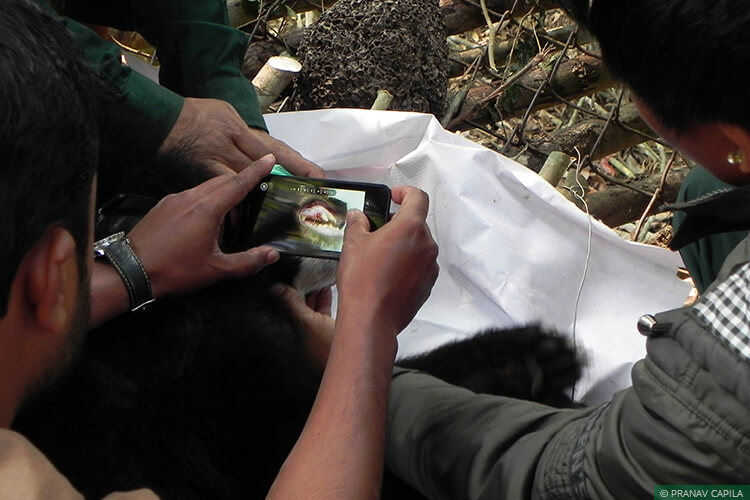 A bear cub is radio-collared and vital data recorded, prior to the beginning of its wild rehabilitation protocol.
A bear cub is radio-collared and vital data recorded, prior to the beginning of its wild rehabilitation protocol.
The Centre for Bear Rehabilitation and Conservation (CBRC) is the first specialised rehabilitation centre for Asiatic black bears in India. Supported by the Ministry of Environment and Forests (MoEF), the centre was established jointly by the Arunachal Pradesh Forest Department, International Fund for Animal Welfare (IFAW) and Wildlife Trust of India (WTI) in 2002, with an aim to rehabilitate displaced cubs back into the wild.
Situated on the West Bank of Pakke River in Pakke Wildlife Sanctuary and Tiger Reserve (WLS & TR), CBRC provides shelter, food and veterinary care to orphaned cubs. A field biologist, a veterinarian who also manages the IFAW-WTI run Mobile Veterinary Service unit of Arunachal Pradesh, and trained animal keepers care for the cubs during their stint at CBRC.
CBRC provides shelter, food and veterinary care to orphaned cubs, with the aim of eventual wild rehabilitation.
Following stabilisation at the centre, as the cubs wean off milk, they are relocated into a forest rehabilitation site, for an ‘assisted release’. These rehabilitation sites are selected following extensive scientific deliberations to evaluate their suitability for the cubs’ release. Factors such as topography and vegetation, habitat suitability, food availability, biotic pressure, predators etc are studied to select a suitable site for the acclimatisation and release of the cubs.
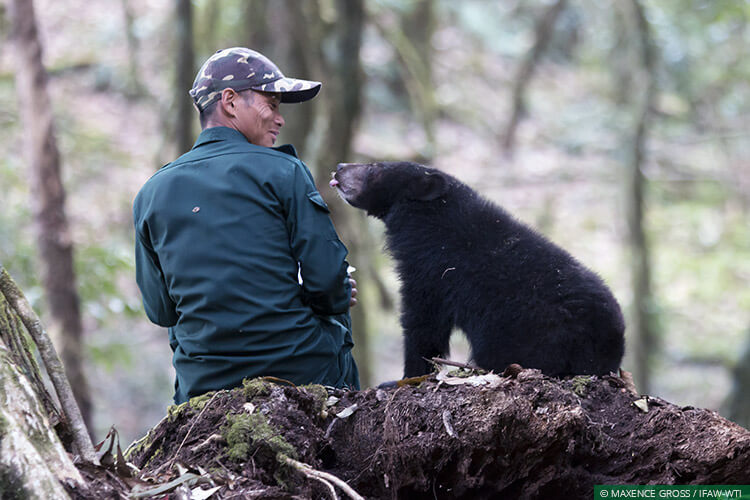 Bear cubs that are old enough and physically capable of undergoing rehabilitation are taken for daily walks by an animal keeper, allowing them to hone the skills they require for independent survival in the wild.
Bear cubs that are old enough and physically capable of undergoing rehabilitation are taken for daily walks by an animal keeper, allowing them to hone the skills they require for independent survival in the wild.
At the release site, the cubs undergo prolonged acclimatisation, before the release. They are taken for daily walks into the forest by a foster parent (an animal keeper) who is responsible for the well-being of the cubs during this period. These walks provide the cubs with an opportunity to instinctively familiarise themselves with their natural habitat. The cubs identify their natural food and hone other skills necessary for independent survival in the wild. At night, the cubs remain at the campsite where they are provided with a concentrated feed to supplement their dietary requirements.
As the cubs mature, they become increasingly reluctant to follow the keeper back to the campsite from their walks. The cubs are radio-collared for post-release monitoring when the rehabilitators are confident of the cubs’ independent survival in the wild.
Eventually, the cubs are let off on their own to fend for themselves. They are remotely monitored for six to eight months, by which time the radio collars automatically drop off and the cubs’ ability to survive in the wild is established as well.
PARTNERS: Arunachal Pradesh Forest Department // International Fund for Animal Welfare
PROJECT LEAD: Dr. Panjit Basumatary (panjit@wti.org.in)


